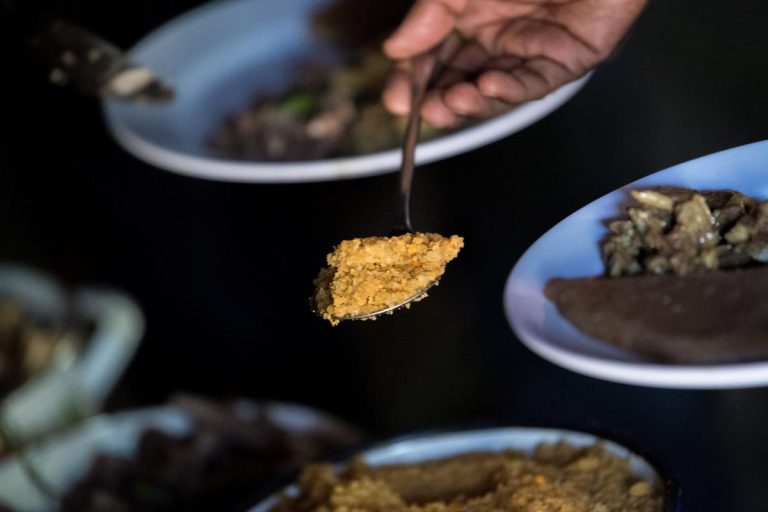Time is running out to avert a potentially catastrophic famine from spreading across Yemen, according to HSA Group, which Yemen’s largest company and the country’s leading wheat importer.
The firm has issued the stark warning, calling for collaborative action to prevent an impending famine, which it says is looming due to unprecedented disruption to global wheat supplies caused by the fallout of the Russia-Ukraine conflict.
Global wheat prices are set to rise further due to the export ban on Indian wheat that came into effect just two days ago. Without urgent action, the latest developments have the potential to push Yemen’s ongoing food security crisis to the point of no return.
The managing director of HSA Group for the Yemen region, Nabil Hayel Saeed Anam, said: “Further increases in global wheat prices will leave the private sector’s ability to provide essential supplies to the Yemeni people and international humanitarian programmes on a knife edge.
“Without an urgent intervention, there is an immediate and definitive risk that we will not be able to prevent a wave of extreme hunger from engulfing the country and pushing hundreds of thousands into famine.”
The country needs extraordinary measures to maintain an uninterrupted supply of this daily staple to communities and aid programmes before it is too late for hundreds of thousands of people.
Nabil Anam added: “Desperate times call for bold action. We stand ready to work hand-in-hand with our international and regional partners to help put in place emergency mechanisms to respond to the country’s food security crisis that will enable the private sector to access and fund wheat imports in the immediate term.”
HSA Group has written to leaders in the international community raising alarm that hundreds of thousands of Yemenis across the country are set to experience extreme hunger in a matter of months, in light of escalating global wheat prices, dwindling wheat stocks in the country, and the Yemeni private sector’s diminishing purchasing power that is preventing sufficient supplies of essential foodstuffs from entering the country.
“During this current period of global uncertainty, HSA has taken steps to ensure access to basic commodities so that we can continue to provide affordable food and essential goods to Yemeni people,” Nabil Anam said.
“This includes making use of our $75 million loan agreement with the International Finance Corporation, which has allowed us to mobilise working capital rapidly in the face of rising wheat prices to secure sufficient supplies of this daily staple for the country. However, this is not sustainable and time is running out.”
The company has called on the international community to put in place emergency mechanisms to stave off a further humanitarian crisis, such as creating a special import finance fund that would enable Yemen’s wheat importers to rapidly access finance and working capital to fund wheat purchases on the global market and to cover the significant cost of importing food products into the country; and extended payment terms for Yemeni food importers in their dealings with international suppliers, to help secure and fulfil commercial contracts that are critical in ensuring a steady supply of foodstuffs to the country.
Impact of the Russia-Ukraine conflict on Yemen’s wheat crisis
The conflict in Ukraine has caused huge shockwaves across global commodity markets – most notably impacting wheat supplies.
Global wheat prices have recently reached a 14-year high, which is already having massive consequences for suppliers and manufacturers across the world.
Yemen purchases approximately one third of its wheat from Ukraine and Russia. The loss of such a significant proportion of the country’s source of wheat, which is relied upon for communities that are already on the brink of famine to produce daily staples, such as bread, will exacerbate the effects of the world’s worst humanitarian crisis.
The country’s private sector plays a vital role in ensuring the country’s food security and is responsible for the vast majority of food imports into Yemen, which make up 90 percent of the country’s total food supply and are relied on by Yemeni communities.
These imports are distributed and sold to consumers across the country and – critically – also supply international humanitarian aid operations, such as those run by the World Food Programme (WFP).
Without the Yemeni private sector, these essential programmes, which fed up to 13 million people per month in 2021 (WFP), would not be able to function on the scale required to respond to the current humanitarian disaster.
The wheat crisis is compounding the effects of the country’s food security crisis – with the minimum food basket price significantly increasing across Yemen over the past year and as much as 119 percent in parts of the country (WFP).
Yemen is facing the prospect of food affordability and global supply chain challenges on a scale not seen before.
HSA Group has therefore called for an immediate international intervention to avert further humanitarian catastrophe in the coming months, proposing that international and regional organisations explore innovative solutions to ensure sufficient wheat supplies reach Yemeni communities, such as:
- Giving Yemen’s wheat importers priority access to wheat supplies in the international markets, to ensure that communities at greatest risk of famine or extreme hunger receive sufficient foodstuffs and that international humanitarian programmes can remain functional.
- In light of the significant devaluation of the Yemeni riyal against the US dollar, urgently putting in place a special emergency fund and import financing programme specific to the country, which will enable Yemen’s wheat importers to rapidly access finance and working capital to fund wheat purchases on the global market and imports into the country. This could include an import finance facility for Yemen backed by an international institution, or the use of blended finance solutions supported by first-loss guarantees for Yemeni importers through import finance agreements.
- A new scheme that formally extends payment terms between Yemeni food importers and their international suppliers to a standardised 60-day period, which is guaranteed by an international organisation or financial institution.
Nabil Anam concluded: “HSA Group has operated across Yemen for 85 years, in which time we have witnessed the tragic consequences of conflict and humanitarian disaster first-hand.
“HSA Group will continue to do all we can to support Yemeni people. But, working alone, we cannot guarantee that we will be able to avert catastrophe in the coming months.”





